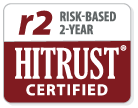By Matt Lambert, M.D., CMO, Curation Health
The Covid-19 pandemic is “hot-spotting” in places like New York City, New Orleans, and Detroit and even as challenging as it is in those cities, this is a good thing for us collectively. Given the nature of the virus and social distancing, as hard as it may seem, this is a best-case scenario. By limiting the spread to pockets around the country, we are buying time for a vaccine, buying time to develop effective treatments, and learning more about this illness. The prolonged asymptomatic carrier state of the virus, combined with limited testing, has made it hard to know the true number of total cases. The prolonged ICU stays of those who will eventually succumb to the virus has made the number of deceased a lagging indicator (by about three weeks). All of this has made things very hard to predict.
Given all of this uncertainty, hospitals nationwide have prepared for the worst- extra ventilators, operations and staffing, and PPE- but not all have seen the worst. Some EDs and ICUs are overwhelmed, some are sitting empty. Some health systems are taking all comers to help manage the wave of acutely ill patients while others are laying off and furloughing staff. The two biggest financial drivers for the U. S. healthcare industry, elective procedures, and outpatient visits, have been halted by state mandate and patient fear, respectively.
Because of all this, most health systems and provider groups are going to emerge from this crisis in dire financial straits and I think we can expect a couple more healthcare bailouts in the coming months. Even though many payers have vowed to pay for Covid-19 cases, the expense of managing prolonged ICU courses goes from being a previous state, financial loser to current state, financial push that will not close the gap on lost ambulatory and procedural revenue. Healthcare as we know it will look very different after this.
Moving forward, payers will have an entirely new perspective on what they will consider as necessary care and the market will follow any new incentives they create. A new population of patients and providers will not want to give up their telehealth visits. Some organizations will shy away from ACOs and assuming risk while others will double down on Medicare Advantage. For both groups, capturing the complexity of care with clinical documentation improvement will be more important than ever. A great indicator of how fast things are changing is that the code for Covid- 19 (U07.1) went into effect on the first of April. But it will also be important to accurately capture the acute conditions associated with the virus, such as respiratory failure and acute renal failure, and the chronic conditions (like chronic kidney disease) that predispose patients to a challenging course of illness. Short of massive payment reforms, maximizing revenue for what care is being delivered through improved documentation will be a key way for organizations to recover from this crisis.

